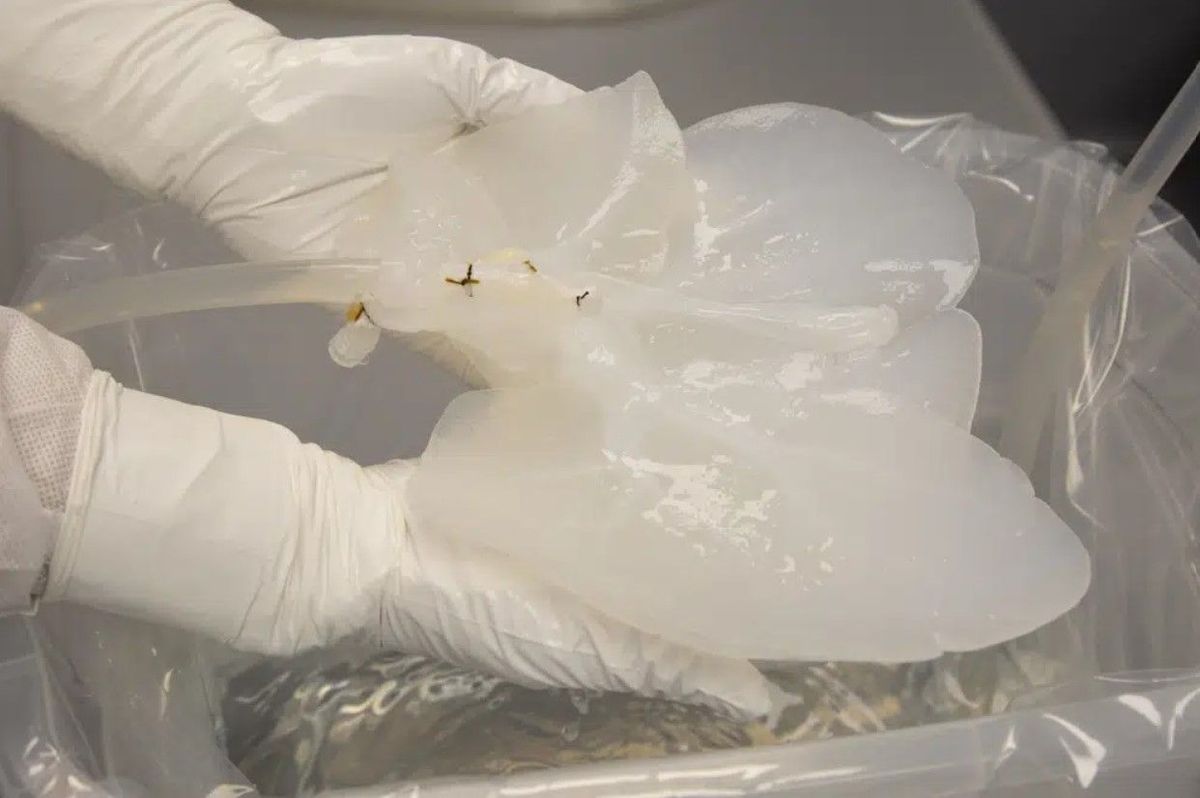What is decellularization, and can it help solve the transplant organ shortage?
Can pig organs be used to save humans needing a transplant?

A few minutes every morning is all you need.
Stay up to date on the world's Headlines and Human Stories. It's fun, it's factual, it's fluff-free.
The backstory: A shortage of transplantable organs is a major issue worldwide. The demand for organs far exceeds the supply, and many patients and their families end up waiting years for a donor organ to become available. For example, right now in the US, a staggering 105,000 people are on the waitlist for an organ transplant.
More recently: Scientists at Miromatrix, a life science company, are working on a solution to this problem, and one approach they're exploring is called decellularization. This involves removing the original cells from an organ while keeping the extracellular matrix in place. By removing animal cells from an organ, like a pig liver, and introducing new human cells to replace them, researchers hope to create functional organs that can one day be transplanted into humans. And the FDA already considers decellularized pig tissue safe for another medical purpose – surgical mesh.
The development: Decellularization is still in the early stages of development, so it's too early to tell how well it might work for organ transplants. Miromatrix hopes to test its bioengineered organs on humans in 2023, first with something of a "liver-assist," where a bioengineered liver is used to filter a patient's blood outside of the body. If that works, they might try out an actual transplant next, most likely with a kidney.
Key comments:
"We essentially regrow the organ," said Jeff Ross, CEO of Miromatrix, speaking on pig-turned-humanlike livers recellularized with human living cells. "Our bodies won't see it as a pig organ anymore."
"The number of organs we have available are never going to be able to meet the demand," said Dr. Amit Tevar, a transplant surgeon at the University of Pittsburgh Medical Center. "This is our frustration."
"It all sounds science fiction-ey but it's got to start somewhere," said Dr. Sander Florman, a transplant chief at New York's Mount Sinai Hospital, one of the hospitals planning to participate in the liver-assist experiment. "This is probably more of the near future than xenotransplantation."




Comments ()